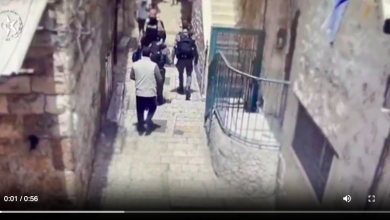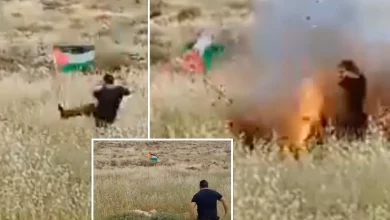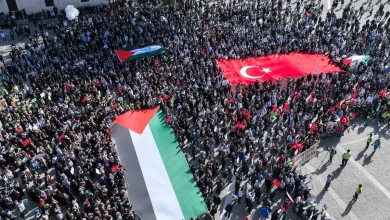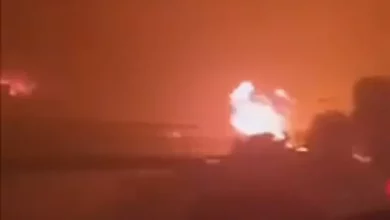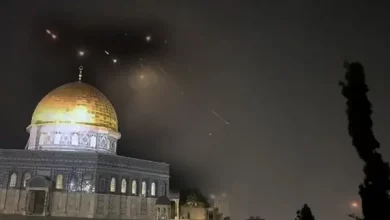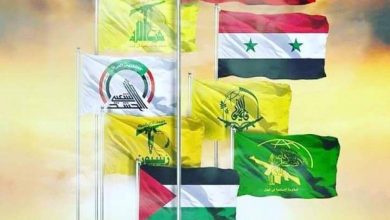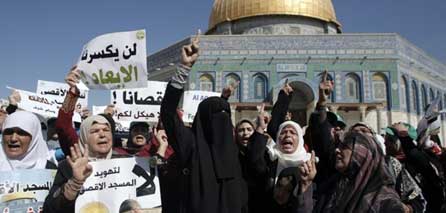
Israeli forces detained a Palestinian woman on Sunday in the old city of occupied Jerusalem after Israeli soldiers and police officers dispersed a rally protesting against an Israeli “blacklist” of Palestinians banned from entering the Al-Aqsa Mosque.
A participant in the rally, Um Eyhab al-Jallad, said that a group of blacklisted men and women marched outside of the al-Majlis gate of the Al-Aqsa Mosque compound to protest not being allowed to enter the compound.
The protesters then rallied towards Damascus Gate at the entrance of the Old City, raising posters with slogans like “I have the right to pray in al-Aqsa,” and “Al-Aqsa belongs to us and it’s not their temple.”
Israeli soldiers surrounded the protesters as they were walking towards Herod’s Gate, and dispersed them using tear gas and rubber-coated steel bullets.
Israeli forces then detained protester Hanadi al-Halawani.
Israeli police spokeswoman Luba al-Samri said in a statement that a woman was detained after she allegedly “hurled stones towards Israeli police officers.”
A crowd of demonstrators gathered around the Israeli forces as they tried to detain al-Halawani, and were dispersed when Israeli police used unspecified “riot dispersal means,” al-Samri added.
“The protest has only one single message and a clear demand: to be allowed to access the Al-Aqsa Mosque,” al-Jallad told Ma’an. “We have the right to access our mosque and pray whenever we want.”
“The lists posted outside all gates of the mosque does not rely on an official ban decision and there is no time limit for the ban,” she added. “This is a punitive procedure to deny those men and women access to Al-Aqsa while groups of settlers are allowed to storm it and desecrate it.”
Israeli occupation regularly impose restrictions on the entrance of Palestinian Muslim worshipers to the Al-Aqsa compound, which is located in the heart of occupied Jerusalem.
Similar restrictions in the past have led to major protests across the city, as Palestinians charged that the exclusion of some worshipers is part of a larger strategy to “Judaize” Jerusalem and deny the Palestinian right to live and pray in the holy city.

